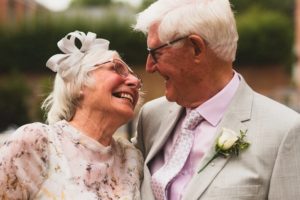Does sleep change as you get older?
Sleep plays a critical role in overall health, and its patterns, quality, and duration change as individuals age. Research has shown that aging is associated with shifts in sleep architecture, including decreased slow-wave sleep, increased nighttime awakenings, and changes in circadian rhythms. These changes can contribute to cognitive decline, metabolic disorders, cardiovascular diseases, and a higher risk of neurodegenerative conditions such as Alzheimer’s disease. Additionally, sleep disturbances in older adults are linked to mental health issues, including depression and anxiety.
Recent studies explore various factors affecting sleep in aging populations, such as lifestyle habits, genetics, environmental influences, and medical conditions like obstructive sleep apnea (OSA). Interventions including cognitive behavioral therapy for insomnia (CBT-I), light therapy, and pharmacological treatments are being investigated to improve sleep quality in the elderly.
There are many myths associated with getting older that relate to sleepiness. Many are distortions of physiologic reality that this brief discussion can help dispel.
For example:
- MYTH:
- The older you are, the harder it is to stay awake and productive during the day.
- REALITY:
- The aging process is associated with a change in the depth of sleep, since there is a reduction in delta (deepest)sleep by over 75%. There is also a greater tendency to awaken more often and not fall back to sleep so easily. However, if the quality and quantity of medium-level sleep is adequate, sometimes including use of a brief nap, it needn’t be harder to stay awake and alert for many seniors.
- SOLUTION:
- If you think you have become more sleepy during the day since your retirement, don’t assume that boredom is the reason. Ask your doctor to help you determine if you have a treatable tiredness. Often, the quality of your sleep can be improved. Age is not automatically a reason to be naturally tired.
- MYTH:
- A tall glass of wine or a double shot of Jack Daniels is the ideal sleep aid for getting to sleep faster.
- REALITY:
- The commonest sleep problem in the senior years is insomnia, particularly in women. There are many reasons for not being able to fall asleep or stay asleep. Some causes of insomnia can be identified by your family physician and addressed with medication or counseling, such as problems of anxiety, depression, or pain. Other causes may require a sleep specialist to investigate, such as poor breathing during sleep, restless legs or a sleep behavioral disturbance. But a nightcap is not a good way to address insomnia, contrary to popular belief. Alcohol taken too close to bedtime can cause increased sleep fragmentation and much worse restlessness in the middle of the night. Chronic use of alcohol late at night can lead to a very refractory insomnia after several months.
- SOLUTION:
- There are certain individuals who are either predisposed to becoming insomniacs or have some critical life event that inevitably leads them to so become. In either case, the solution to improved sleep is multifactorial and is best addressed by a sleep specialist. Many who begin taking sleeping pills can get relief temporarily but not always permanently by this approach. There are a host of cognitive or behavioral strategies that work just as well as medications. Sleep experts are best equipped to help seniors with chronic insomnia.
- MYTH:
- Snoring in the elderly is normal and usually means that the sleep quality is good.
- REALITY:
- Actually, this statement is half right! Snoring is present in around 50% of seniors, almost as common in women as men by the age of 70. The incidence rate is said to decline, according to statisticians, after 75 years old. WHY? Like the story of the sound in the forest that doesn’t exist because no one hears it, snoring rates allegedly go down because the interviewed person in snoring research among the elderly is either now alone or hard of hearing! But the presence of snoring, while quite common as we age, shouldn’t be reassuring. It is often an indication of a more significant breathing disturbance. The same anatomic problem in snoring is found in those with obstructive sleep apnea. The difference between the conditions is a matter of distance: in apnea, there is closer contact of tissues in the throat, preventing air from getting through; in snoring, the tissues are merely vibrating together but air can get in and out.
- SOLUTION:
- If you are aware that you or your mature partner does snore, and if apnea has been observed as well, the affected person should be tested for it. It is quite clear that sleep apnea is a risk factor for stroke or heart attacks, raises morning blood sugar in diabetics, and makes it harder to bring blood pressure down. See your doctor.


